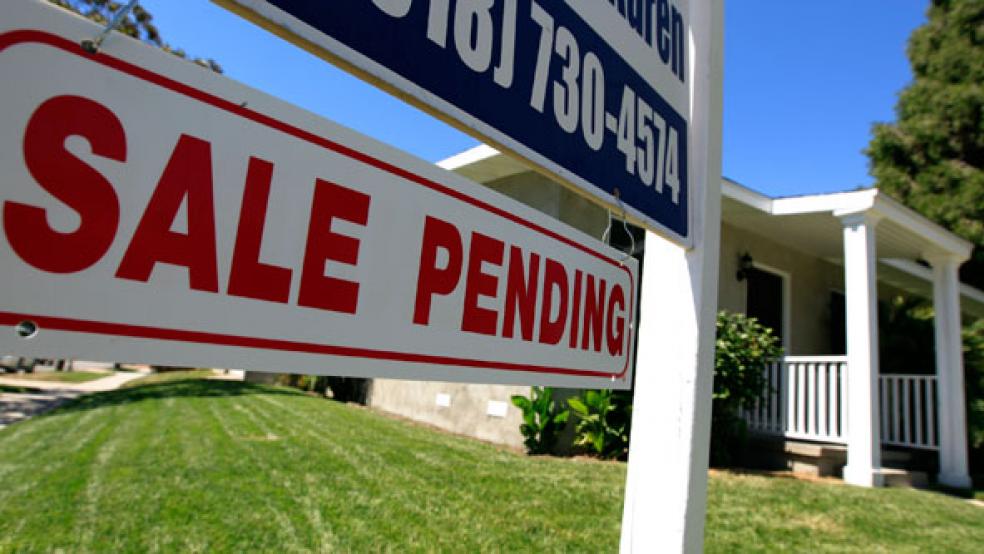A bipartisan group of 162 lawmakers asked federal regulators to scale back a proposed rule that would encourage lenders to require a 20 percent down payment for new home mortgages, saying it "could threaten a full-fledged economic recovery.”
In a letter dated May 31, the House members urged the six agencies working on the rule to consider a smaller down payment limit. Lawmakers are joining a broad coalition of industry and consumer groups that have said the 20 percent rule could cripple the mortgage market and limit homeownership in low-income communities. As proposed, critics say, the rule could destabilize an already shaky recovery, especially given the recent double-dip in housing prices to levels not seen since 2002.
The proposed rule is one of over 200 set in motion by last year's Dodd-Frank financial reform, aiming to curb the excessively risky lending that contributed to the real estate bubble and subsequent financial collapse. While many of the proposals have drawn fire from Wall Street and Congress, the down-payment requirement is arguably the most controversial one regarding home mortgages, which were at the heart of the crisis.
"This one is certainly the most immediate challenge," said Karen Shaw Petrou, managing partner of Federal Financial Analytics in Washington. "Everyone is fearful it would clamp down on mortgage lending right at the point when the economic recovery is so dependent on housing."
At issue is the Dodd-Frank provision requiring lenders to keep a 5 percent stake in loans, (called the risk retention requirement) that they sell or chop up into securities. Lenders can get around the risk retention requirement by offering a new type of safe home loan, known as a qualified residential mortgage. The proposed rule defines a qualified residential mortgage as having a 20 percent down payment -- the first time in history a federal rule would set such a high standard for home loans. Industry officials expect that such loans will make up the bulk of the housing finance market.
"We should not be placing such a high emphasis on just one factor in determining a loan product's overall risk," said Michael D. Berman, chairman of the Mortgage Bankers Association, in recent congressional testimony. "While down payment has an impact on default, other factors, including full documentation of income and borrower credit, can mitigate this risk."
The vast majority of mortgages currently include down payments of less than 20 percent, which are often backed by private mortgage insurance. A survey by the National Association of Realtors found that 86 percent of first-time buyers made smaller down payments.
“We fear first-time homebuyers, lower-income homebuyers and communities of color are going to be forced into a more expensive mortgage option because they will not be able to come up with this kind of down payment,” said Barry Zigas, director of housing policy for the Consumer Federation of America, which wants regulators to extend the June 10 comment deadline on the rule.
In a recent poll by the National Foundation for Credit Counseling, only 12 percent of respondents could afford a 20 percent down payment. "Since prices for homes are at historic lows, the necessary down payment represents a lower dollar amount than would typically be necessary," NFCC spokesperson Gail Cunningham said in a statement. "Nonetheless, consumers still do not feel capable of meeting the requirements."
Lawmakers led by Reps. John Campbell, R-Calif., and Brad Sherman, D-Calif., signed the letter, which was addressed to the heads of the Securities and Exchange Commission, Federal Reserve Board, Federal Deposit Insurance Corp., Federal Housing Finance Agency, Office of the Comptroller of the Currency and Department of Housing and Urban Development.
The coalition opposed to the rule includes the Center for Responsible Lending, Consumer Federation of America, Mortgage Bankers Association, National Community Reinvestment Coalition and National Housing Conference. "It's very unusual to see that broad a spectrum of political opposition to a rulemaking," said Dan Crowley, a partner at K&L Gates and head of the capital markets reform group.
Related Links:
Buy a Home Without Cash From Parents (FoxBusiness)
QRM Would Mandate 20% Down Payment (San Jose Mercury News)
Real Estate News: Home Prices Still Falling (The Wall Street Journal)





